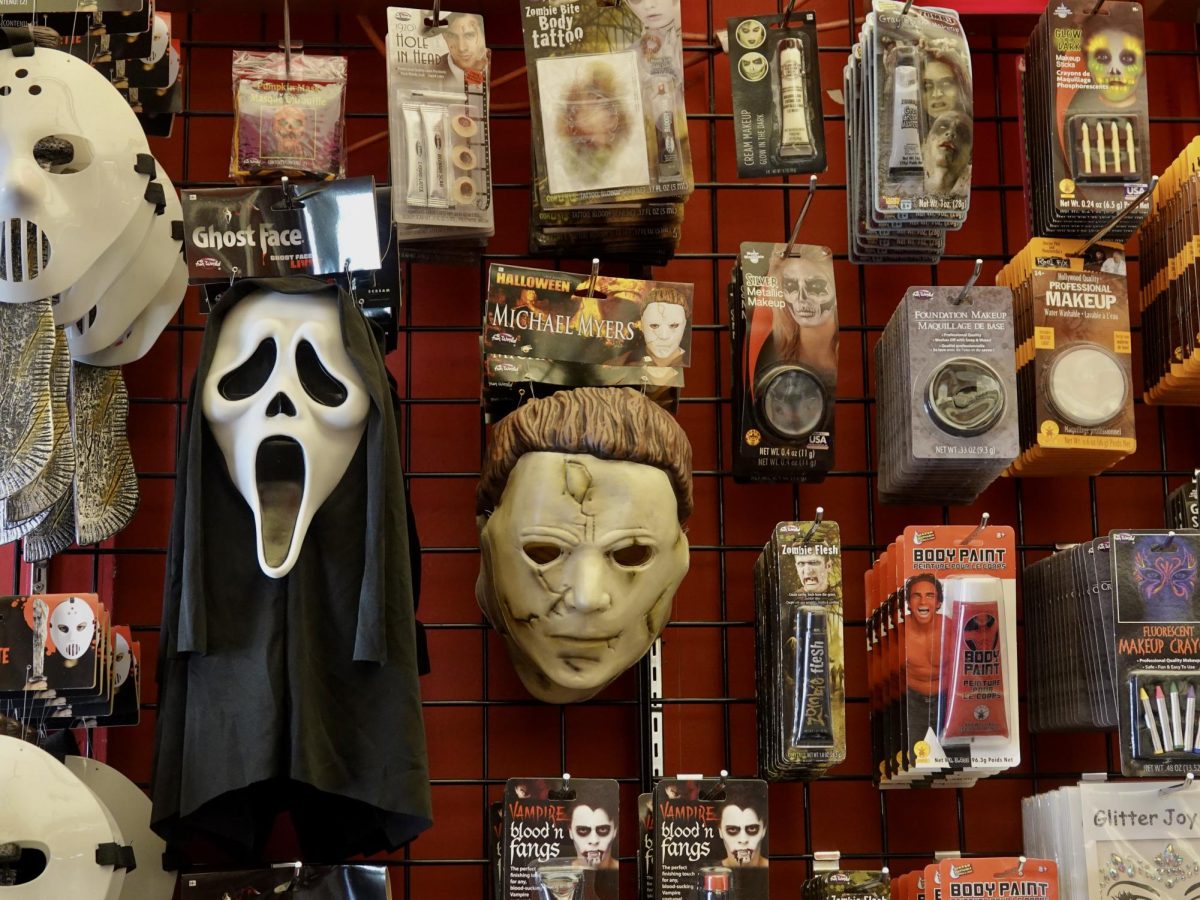October 31 marks an annual celebration of fear. It’s a day where humans lean into frightening activities including waivers, terrifying outfits and horrific movies. To some, indulging in fear may seem counterintuitive to the human survival complex, yet, so many people are drawn to the daunting feeling of fear.
At first glance, fear seems uncomfortable and unappealing. According to the Cleveland Health Clinic, the amygdala is the part of the brain that triggers the fight or flight response. When it is activated in fearful situations, the body releases adrenaline and cortisol while our heart rate and blood pressure increase causing a full body experience.
University of Wisconsin social psychologist and professor Paula Niedenthal detailed these body responses.
“[If you went through a haunted house] you have this adrenaline, you have activation of the sympathetic nervous system,” Niedenthal said. “You have wide eyes, open mouth and open nasal cavity during the fear response. Then your parasympathetic nervous system can tamp that down,” Niedenthal said.
Niedenthal also explained how adrenaline is released during the fight or flight response and may play a large part as to why people are drawn to fear.
The fear reaction is usually mobilized only as long as the threat is present and the feeling of adrenaline can last long after the initial release, heightening senses and leaving the person feeling ‘more alive’, Niedenthal said.
Lab manager at Neidenthal Emotions Lab, Karina Miller, also spoke about these reactions during Halloween.
“Halloween [and horror] can be enjoyable for some because it is that feeling of adrenaline, or your body being really active, that can feel good to people,” Karina Miller said.
Halloween tradition has evolved into a fear-seeking holiday for entertainment. The commercialization of fear raises questions about society’s relationship with fear. How has our attraction to fear affected our psyche?
True crime narratives ranging from podcasts to documentaries are becoming increasingly popular among Americans, according to a Pew Research Study. Netflix true crime docu-series, true crime podcasts and YouTube videos are common watches for viewers at home.
Halloween serves a similar function to these forms of media, allowing people to explore the emotion of fear.
“That’s the fun thing about Halloween, it’s like practicing managing fear,” Niedanthal said. It’s the development of emotional understanding and emotion regulation because it’s not real.”
Miller said that overindulging in fear-inducing media can have its drawbacks, possibly leading to desensitization or increased anxiety.
“Sometimes its a lot harder for people to calm their body down after that type of experience and that can have lingering effects,” Miller said. “[You can become] really hyper aware of any possible threats in your environment and hyper vigilant, putting you in a state of chronic stress.”
Constantly being exposed to threats can leave a wear and tear on your nervous system. If your body has to continually address fear and be ready to run away from it, the nervous system puts strain on your body.
On the other hand, constant exposure to horror media could lead to desensitization and decrease our fight or flight response, according to Niedanthal.
Becoming too desensitized to fearful situations could possibly have a negative impact on our survival complex, but there has been limited research on the matter, according to Niedanthal.
“It might be that even though you’re habituated to online sources…once you’re confronted with a cliff you’re about to fall off, your fear response could be adaptive,” Niedenthal said.
Exploration of fear can also allow our minds to expose and feel emotions that are not socially acceptable to express. Niedenthal said that having a safe space where unusual and uncomfortable emotions can be released and exposed with little to no judgment can be beneficial to people’s overall well being.
“On Halloween no one’s going to question if you’re running down the street or if you hear screaming. There’s just a different set of rules that’s allowed on Halloween” said Miller
As the fear-filled holiday of Halloween approaches, people will experience heightened emotions and experiences, which doesn’t necessarily mean it will have a negative impact.
“For UW students Halloween can be one of the most fun weekends here just because you feel connected to everyone,” Miller said. “Enjoy [fear in Halloween] if you can … it’s the one night a year where fear is celebrated.”



